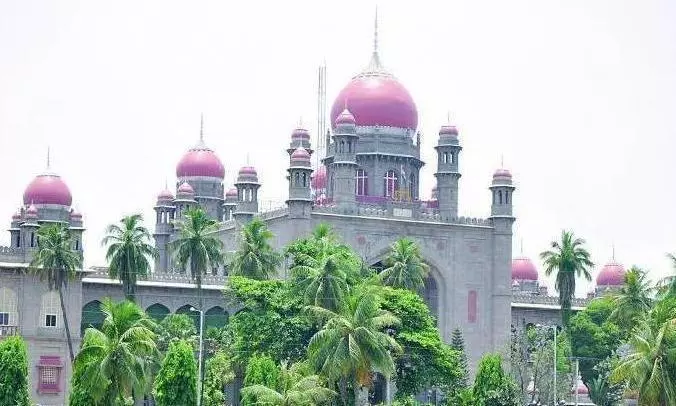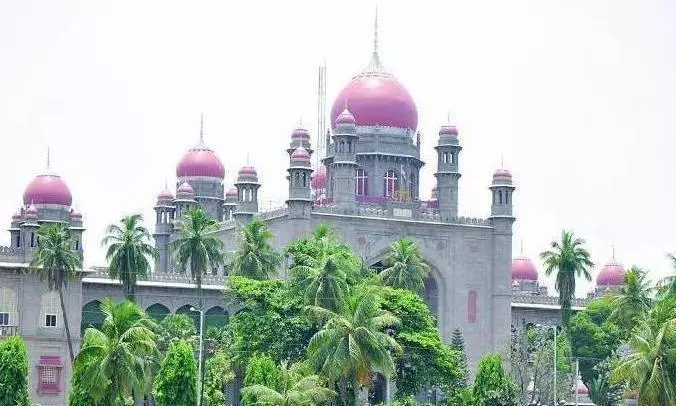
Hyderabad: The Telangana High Court ruled that appeals filed under Section 21 of the National Investigation Agency (NIA) Act can be entertained even after the expiry of the statutory period until and unless there is express exclusion of them. The panel comprising Justice Moushumi Bhattacharya and Justice Nagesh Bheemapaka came down heavily on the NIA for taking opposing stances before different High Courts regarding the impermissibility of extending the timeline for entertaining appeals. The panel was dealing with an application to condone delay of 390 days filed by the accused in challenging orders passed by the special court for NIA cases thereby extending the judicial remand of the accused up to 180 days. The NIA was directed to take appropriate steps to complete the investigation within the period of 180 days. The special court also dismissed the petition filed by the accused for default bail. The court examined decisions rendered by the different High Courts vis-à-vis applicability of Section 5 of the Limitation Act, 1963, which provides for the extension of a prescribed period, with provisions of the NIA Act. The panel took note of the “diametrically opposite stances” taken by the NIA “to suit its purpose” and pointed out that the right not to be discriminated against is an inalienable right of every person while pointing out the “flip-flop on the part of NIA”. The panel pointed out that there was no distinction made between the accused and ‘Agency’ under Section 21 of the Act and both should be treated equally. The panel said, “The perceived statutory bar against an extension of timelines as contained in Section 21(5) of the NIA Act, read with the first and second provisos, beyond 90 days from the date of the judgment/order, may be described as a “Justice Bar” to the filing of appeals beyond the statutory window or – more appropriately – the “Bar to Justice” when inconsistently applied. The timeline must be applied to one and all in equal measure irrespective of whether the appellant is an accused or an “Agency” as constituted under Section 3 of the NIA Act.” The panel also observed that, “The “Justice Bar” cannot be stretched or curtailed at will and must remain of equal length regardless of the litigant at both ends of the spectrum. The doors of justice also cannot selectively be shut to a few and not to others particularly where the life and liberty of the accused is at stake. If justice can be likened to the consistency of a pendulum, the certainty of the motion cannot be reduced to a whimsical swing for self-serving reasons.” The panel accordingly allowed the application for condonation of delay and held that the appeals were maintainable. The panel, however, made it clear that the decision would be subject to the judgment/order pronounced by the Supreme Court in the matter of extension of time under Section 21(5) of The NIA Act read with the provisos.
Dharmapuri tahsildar faces contempt charges
Justice B. Vijaysen Reddy of the Telangana High Court ordered notices against the tahsildar of Dharmapuri mandal, Jagtial district, and others in a contempt plea. The judge was dealing with a contempt petition filed by Gollena Ballamma who alleged that the respondents had willfully disobeyed the orders of the High Court. Earlier, a writ plea was filed challenging the actions of the assistant director and tahsildar in considering the F-Line application for conducting the sub-division survey and fixing the boundaries to a piece of land. The judge based on prima facie evidence that the pattadar passbook was issued to the petitioner, ordered interim direction to consider F-Line application by issuing notice to the petitioner and interested persons within 45 days. It was alleged that the respondents willfully violated the order and delayed conducting the survey.
Pocso case accused given bail
Justice Juvvadi Sridevi of Telangana High Court granted anticipatory bail to a 22-year-old laborer accused of committing rape, aggravated penetrative sexual assault and marrying a child. The judge was dealing with an anticipatory bail application filed by Mekala Shiva. The case of the prosecution was that the younger daughter of the complainant was being harassed by the petitioner, who married her using persuasive words. It was also alleged that the petitioner engaged in sexual intercourse with the victim without her consent, despite knowing that she was a minor. Counsel for the petitioner argued that the petitioner was innocent and that there was no iota of truth in the allegations mentioned in the report and all of them were invented to implicate the petitioner in a false case. As the investigation was in progress, the petitioner prayed for grant of anticipatory bail. The additional public prosecutor (APP) opposed the grant of anticipatory bail stating that specific allegations were levelled against the petitioner and the investigation was in progress. The judge was of the view that both the petitioner and the victim were lovers for a year, married each other with the consent of the victim and were leading a happy marital life. In view of the same and since the investigation is in progress, the judge granted conditional anticipatory bail to the petitioner.
Tribal welfare chairman faces contempt case
Justice Pulla Karthik of Telangana High Court ordered notice to the commissioner of the tribal welfare department and other authorities in a contempt case about the regularisation of 18 daily wage workers. Bhukya Sangya Nayak and others complained of deliberate non-compliance with the interim order passed by the judge earlier. The judge in a writ plea preferred by the petitioners earlier, passed an interim order directing the respondent authorities to consider their representations for regularisation of their services. The petitioners in the writ plea are challenging the actions of the respondent authorities in not considering their long-standing service of around 15 years as illegal and in violation of the Constitution.
